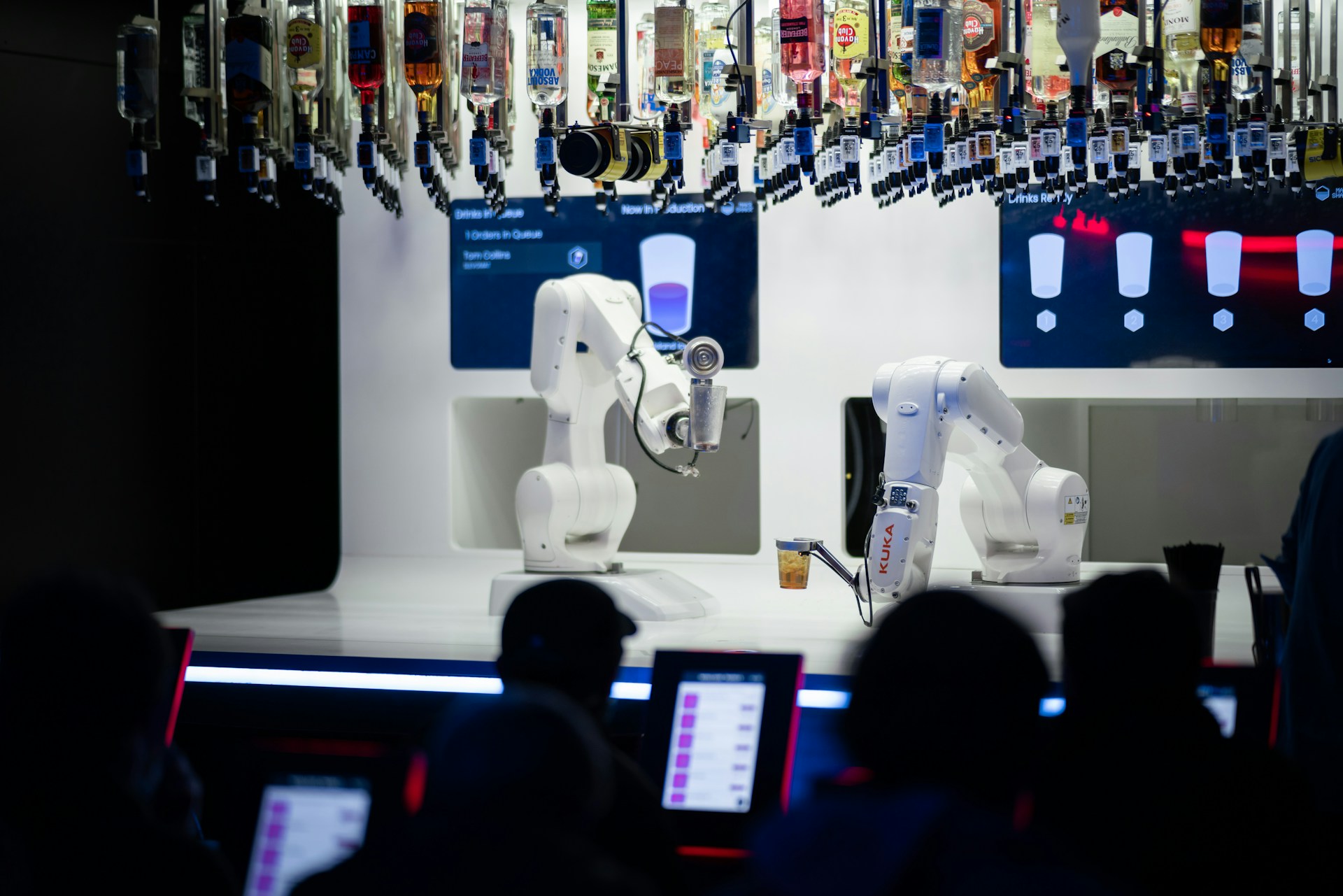The manufacturing industry is a hive of active productivity. With the pace of technology quickening, advanced robotics and automation are increasingly becoming integral parts of the industrial process. In the UK, companies are harnessing the power of robotics to boost efficiency, cut costs, and maximize output. Let’s delve into the practical techniques that manufacturers can employ to effectively use robotics and automation in their production process.
Embracing Automation for Increased Productivity
Automation is more than an advanced technology; it is a revolution altering the landscape of manufacturing. By introducing robotics in your manufacturing process, you will not only streamline operations but also significantly augment productivity.
In the same genre : What Are the Key Steps for UK Construction Firms to Implement Drone Technology?
Let’s first understand how automation works in a manufacturing setting. Industrial robots, powered by advanced software, can automate repetitive tasks once performed by human labor. These range from assembling products, welding, painting, to even packing goods for supply.
The British Automation and Robot Association (BARA) report shows a surge in robotic usage in the UK manufacturing sector. According to BARA, there has been a 30% increase in industrial robot sales in recent years, indicating the growing appetite for automation among UK manufacturers.
In parallel : How Can UK Tech Startups Use Crowdfunding to Validate Market Demand?
The key to successful automation is choosing the right robotic system for your needs. You must ensure the robots you select can handle the complexity and volume of your production tasks. Also, consider your unique plant layout when integrating robots into your existing production line.
Leveraging Robotic Process Automation (RPA)
Robotic Process Automation (RPA) is another effective technique that UK manufacturers can harness. RPA uses software bots to automate routine, rule-based tasks that require little to no human intervention.
RPA can handle data-intensive tasks such as order processing, material tracking, inventory management, and quality assurance. By automating these tasks, you can free up your human workforce to focus on more complex, value-added tasks, thereby boosting productivity.
RPA also brings accuracy and precision. As the software bots are programmed to follow a set of rules, the chances of errors are minimal. This ensures the quality of your output and reduces the time spent rectifying mistakes.
Boosting Efficiency with Collaborative Robots (Cobots)
The future of manufacturing doesn’t involve humans and robots working separately but collaboratively. This is where cobots, or collaborative robots, come in.
Unlike traditional robots that operate independently, cobots are designed to work alongside humans. They are smaller, safer, and more flexible. Cobots can take over repetitive, strenuous tasks, reducing the risk of workplace injuries and boosting your employees’ morale.
UK manufacturers can use cobots to handle tasks such as machine tending, pick and place operations, and even quality inspection. With their inbuilt sensors and vision systems, cobots can accurately detect and handle objects of different sizes and shapes, performing tasks with a high level of precision.
Optimizing Production Through Data Analytics
Today’s advanced robots are not just workhorses; they are also data generators. Equipped with multiple sensors and connectivity options, robots can collect immense volumes of data from your production line.
This data can be a goldmine of insights helping you to optimize your production process. By analyzing this data, you can identify bottlenecks in your process, monitor the performance of your machines, and even predict maintenance needs.
Data analytics, when combined with robotics, can offer a complete, real-time view of your manufacturing operations. This allows you to make informed decisions and adjustments, leading to greater efficiency and productivity.
Investing in Robot Training and Maintenance
No matter how advanced your robots are, they will require regular maintenance and updates to function optimally. It is crucial to invest in regular robot maintenance to prevent unexpected breakdowns that can disrupt your production process.
Training your workforce to work with robots is equally important. While robots can handle many tasks independently, human intervention is still needed for tasks such as programming, troubleshooting, and maintenance. Upskilling your workforce to comfortably work with robots can ensure smooth operations and maximum returns on your robotic investment.
In summary, robotics and automation hold immense potential for UK manufacturers. By embracing automation, leveraging RPA, investing in cobots, utilizing data analytics, and focusing on training and maintenance, you can unlock the full potential of robotics, streamlining your operations and enhancing productivity. Remember, the future of manufacturing is not merely about replacing humans with robots, but rather, creating a synergistic environment where both can coexist and excel.
Harnessing Artificial Intelligence and Machine Learning
In the era of Industry 4.0, artificial intelligence (AI) and machine learning are becoming key drivers of efficiency in the manufacturing industry. These technologies provide the brainpower behind advanced robotics, enabling them to perform complex tasks with high precision and adaptability.
AI-powered robots can learn from their experiences, adapt to new situations and improve their performance over time. They can make decisions based on the data they collect, allowing them to handle a variety of tasks without the need for specific programming. This flexibility enhances the adaptability of your production system, allowing you to quickly adjust to market changes.
Machine learning, a subset of AI, involves robots learning from data without being explicitly programmed. They can identify patterns in data, enabling them to predict outcomes and make informed decisions. For instance, machine learning algorithms can predict machine breakdowns before they occur, enabling preventive maintenance and minimizing downtime.
Furthermore, AI and machine learning can power industrial vision systems. These systems enable robots to navigate their environment, recognize objects and perform tasks that require a high level of precision, such as picking and sorting components in a supply chain.
However, implementing AI and machine learning requires specialist knowledge. Therefore, seeking expert advice or investing in integrator certification can be a wise step. Professionals can guide you on how to optimally use these technologies in your unique manufacturing context, ensuring you fully harness their potential.
Navigating the Future of Manufacturing with BARA and UKIVA
The British Automation and Robot Association (BARA) and the UK Industrial Vision Association (UKIVA) are two leading bodies in the UK that provide support and guidance to manufacturers looking to implement robotics and automation.
BARA provides a wealth of resources, expert advice, and best practice guidance for integrating robotics into manufacturing. They advocate for the use of industrial robots to automate best and improve the efficiency of production systems. By becoming a member of BARA, UK manufacturers can gain access to a network of industry experts and stay updated on the latest developments in robotics and automation.
UKIVA, on the other hand, specializes in industrial vision. They offer valuable insights on using vision systems effectively in manufacturing, which can be crucial in tasks such as quality inspection, component recognition, and robot guidance. UKIVA also offers a ‘vision in action’ visit exhibit, providing manufacturers with an opportunity to see this technology in use and understand its potential benefits.
Both BARA and UKIVA can provide expert advice on selecting the right robot types for your needs, ensuring you make an informed decision and get the most out of your investment.
In conclusion, the use of advanced robotics, AI and machine learning can propel UK manufacturers to new heights of efficiency and productivity. These technologies can automate repetitive tasks, reducing the workload on human employees and allowing them to focus on more complex, value-adding tasks.
However, the revolution in manufacturing is not about replacing humans with machines, but creating a harmonious relationship where both can thrive. From collaborative robots working side by side with human workers, to AI and machine learning enhancing the capabilities of robotic systems, the future of manufacturing is undoubtedly a blend of human ingenuity and machine precision.
Moreover, organizations such as BARA and UKIVA provide invaluable support and expert advice to manufacturers looking to embrace this future. By harnessing the opportunities offered by robotics and automation, UK manufacturers can stay competitive in the rapidly evolving global manufacturing landscape. In such a dynamic environment, the key to success lies in understanding and integrating these technologies into the existing production system while also upskilling the workforce to adapt to these changes.
Therefore, while the journey may seem complex, the rewards – increased efficiency, higher productivity, and a more resilient supply chain – make it a worthwhile investment for UK manufacturers.






